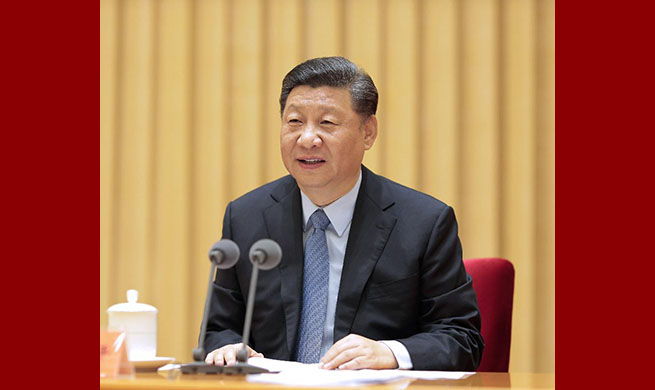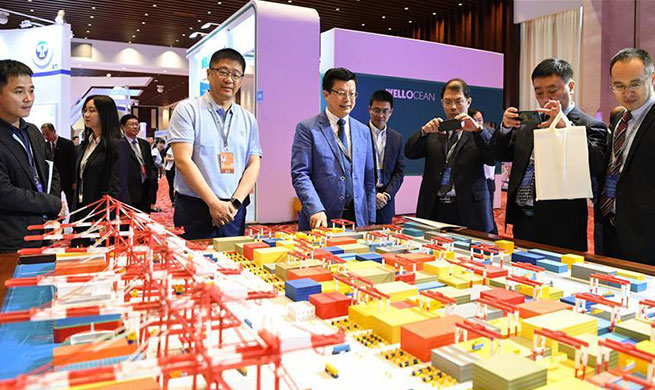BEIJING, May 9 (Xinhua) -- Lei Xuele, a senior high school student, went into rapture after learning he could continue his passion for robots at college.
"I'm interested in programming since I was a little boy, and have been taking many related extracurricular courses," said Lei, from No. 1 Middle School in Meishan, southwest China's Sichuan Province.
Starting this year, Chinese college candidates interested in AI will have more choices in undergraduate programs as 35 universities nationwide roll out AI majors with the approval of the Ministry of Education.
"The outcome is mainly driven by businesses instead of the academic circle," said Jiang Min, a professor with the Department of Cognitive Science and Technology of Xiamen University.
"It reflects the increasing demand for AI application research and talents," he said.
"The conditions for creating AI majors have matured," Jiang noted. "Chinese researchers keep abreast with the latest development in international academic circles, which serves as the foundation to set up such programs."
China sees AI as an innovation focus that will spark technological breakthroughs.
In July 2017, the State Council, the cabinet, issued a development plan for the new generation of AI and listed accelerating the cultivation of top-notch AI talents as a primary task.
The move was embraced by business insiders who believe it will help make up the talent gap they have faced in recent years.
Guo Changchen, founder of Keeko Robot Technology Co. Ltd., a Xiamen-based company developing robots for education services, said the training of AI engineers was time-consuming and expensive.
"We have to start from the scratch because they have no prior knowledge or experience," Guo said.
China's AI market is expected to reach 96 billion yuan (about 14.18 billion U.S. dollars) at the end of this year, according to a report by the Economic Information Daily.
Amid thriving commercialization of AI-related technologies, businesses want a large number of professionals.
There is a deficit of at least 1 million AI professionals in China, according to the estimate of the Tencent Research Institute and Boss Zhipin, an online hiring and job-hunting platform.
AI businesses need talents at different expertise levels, not only top professionals in computing logic and algorithms, but also people to do technical jobs like data collecting or primary processing, according to Guo.
"With more undergraduates majoring in AI, we can have more choices and hire more affordable personnel," he said.
There is consensus that businesses and universities can work in concerted efforts to foster talents, satisfying industry demand and further academic research.
"China's huge population creates unprecedented data dividends, which can be harnessed to optimize algorithms," Guo said, noting that the research results can be applied to empower manufacturing and service sectors.
Xu Weiwei, a researcher on AI and computer graphics with Zhejiang University, however, suggests universities remain prudent in launching AI programs.
"They should reasonably evaluate their academic foundation and teaching capabilities and make long-term plans before taking actions," he said.
Jiang Min agrees. "New challenges in terms of possible adverse impacts on ethics, information security and privacy should be taken into account when making plans for such programs."

















